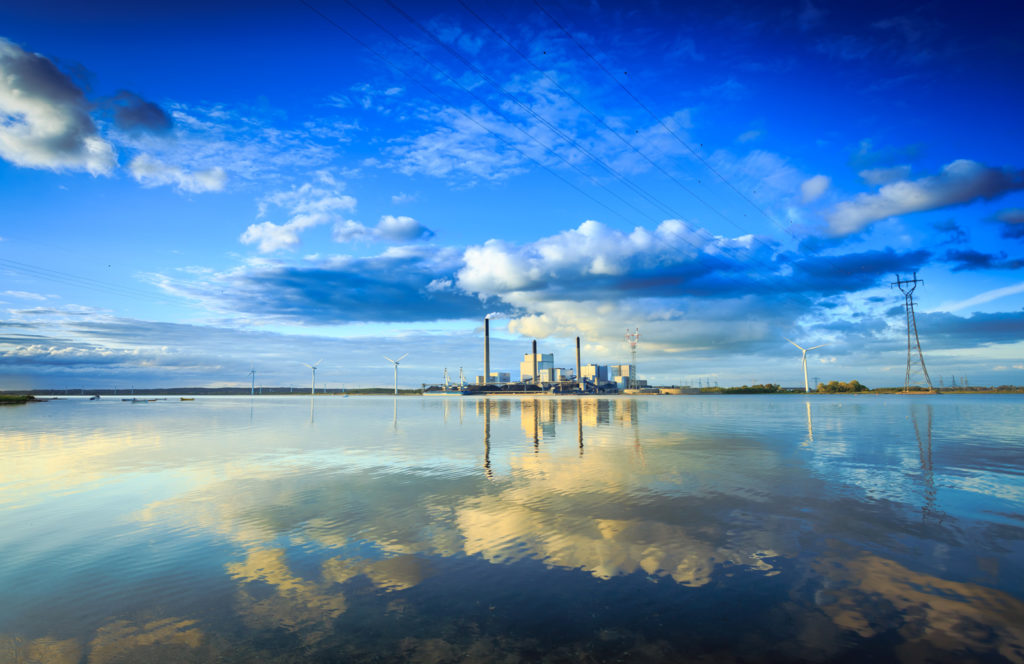
Global CO2 Initiative announces advisory board
A diverse group of leaders in technology, research, policy, and industry assemble to drive development of a critical climate solution.

A diverse group of leaders in technology, research, policy, and industry assemble to drive development of a critical climate solution.

The Global CO2 Initiative at the University of Michigan has established an advisory board to support its critical mission of developing ways to remove carbon dioxide from the air and turn it into useful products.
The initiative tapped a broad range of experts and stakeholders that are actively engaged in the global carbon management community and support the goal of transforming the liability of CO2 into an economic opportunity.
“As the Global CO2 Initiative expands its network, we look forward to working with each of our board members to bring their unique voices and expert guidance to the carbon removal space, helping us achieve our goal of deploying critical technologies to combat the effects of climate change while creating economic growth and employment opportunities,” said Volker Sick, Arthur F. Thurnau Professor and the DTE Energy Professor of Advanced Energy Research at Michigan Engineering and director of the Global CO2 Initiative.
The effort aims to reduce the equivalent of 10 percent of current atmospheric carbon dioxide emissions annually by 2030. That’s roughly 4 gigatons that could potentially be converted into concrete and other construction materials, fuels, and carbon fiber for use in lightweight vehicles and fabrics, for example. It has received substantial funding through Michigan Engineering’s Blue Sky Program.
“I am thrilled to support the Global CO2 Initiative’s mission and work alongside this outstanding group,” said Bernard J. David, advisory board chairman of the Global CO2 Initiative. “The Global CO2 Initiative will continue to leverage the full strength of the University of Michigan’s world-class faculty and resources along with its international network of researchers, policymakers and industry partners to deliver real solutions to one of the most complex challenges of our time.”
This announcement comes as the University of Michigan President Mark Schlissel announced the membership of the U-M’s Commission on Carbon Neutrality. The commission is charged with developing a plan that includes specific strategies and a timeline for the university to achieve carbon neutrality in a fiscally responsible manner.
The Global CO2 Initiative advisory board will convene for the first time at the University of Michigan on April 11, 2019. At that time, the initiative will host a two-day expert workshop furthering the development of its widely used Techno-Economic Assessment and Life Cycle Assessment Toolkit for CO2-based products (TEA/LCA).
It will gather experienced LCA/TEA experts and industry stakeholders working in the carbon dioxide capture and utilization space jointly with interested representatives from policy and civil society to explore next steps towards building one harmonized toolkit for measuring and reporting on carbon dioxide utilization and removal technology.
The workshop is sponsored by KPMG, Michigan Engineering, the U-M Energy Institute, and co-organized by the Global CO2 Initiative, EIT Climate-KIC, the National Energy Technology Laboratory, the National Renewable Energy Laboratory, and Volans.
Beyond the LCA/TEA toolkit development, the Global CO2 Initiative is deploying funds received from Michigan Engineering’s Blue Sky Program and support from the University of Institute Energy Institute to develop and commercialize a range of technologies. These include new highly active sorbents for improved CO2 capture efficiency and capacity, photocatalytic hedgehog catalysts for methanol synthesis, reinforced natural fibers for composites, and flexible concrete.
“The Global CO2 Initiative will continue to leverage the full strength of the University of Michigan’s world-class faculty and resources along with its international network of researchers, policymakers and industry partners to deliver real solutions to one of the most complex challenges of our time.”
Bernard J. David, advisory board chairman
| Rosina Bierbaum, Professor, University of Michigan |
| Roberto Bocca, Head of Energy and Basic Industries, Member of the Executive Committee, World Economic Forum |
| Tom Delay, Chief Executive, Carbon Trust |
| Dave Douglas, Applied Invention |
| Jae Edmonds, Chief Scientist and Battelle Fellow, Pacific Northwest National Laboratory, Joint Global Change Research Institute |
| Marcius Extavour, Senior Director, XPRIZE Foundation |
| Christoph Gürtler, Head of New Processes and Product Department John P. Holdren, Professor, Harvard University, Former Senior Science Advisor to President Barack Obama and Director of the White House Office for Science and Technology Policy |
| Stephanie Kesting, President, CO2 Value Europe |
| Sir David King, FRS HonFREng, Emeritus Professor in Physical Chemistry, University of Cambridge |
| Louise Kjellerup Roper, Executive Director, Volans |
| Tom Lovejoy, Senior Fellow, United Nations Foundation and University Environmental Science and Policy Professor, George Mason University |
| Dan M. Martin, Conservation International (retired) |
| Fred Mason, Caterpillar (retired) |
| Mac McQuown, Co-Founder, Director, DCI, LLC |
| Laura Nereng, Sustainability and Business Development Leader, 3M Eric Orts, Professor, University of Pennsylvania Wharton School of Business |
| Michael Pcolinski, Vice President, Advanced Materials & Systems Research, BASF |
| Louisa Ritter, President, Pisces, Inc. |
| Sira Saccani, Director Sustainable Production Systems, EIT Climate-KIC |
| David Sandalow, Inaugural Fellow, Center on Global Energy Policy; Senior Research Scholar; Co-Director, Energy and Environment Concentration, Columbia University |
| Tim Stiles, Partner, KPMG LLP |
| Gerald Stokes, Incoming Chair, Department of Technology and Society at SUNY Korea |
| Peter Styring, Professor, University of Sheffield |
| Ellen Williams, Professor, University of Maryland |
The initiative develops and drives the deployment of technologies and solutions that can capture and convert carbon dioxide into a commodity. Its goal is to reduce the equivalent of 10 percent of current atmospheric carbon dioxide emissions annually by 2030 through the commercialization of CO2-based products that have the capability of being “carbon negative, dollar positive.”
The Global CO2 Initiative at the University of Michigan brings together critical stakeholders from various disciplines to discover breakthrough innovations and solve complex sustainability challenges at a local and global level.
Follow the initiative on Twitter: @reuseCO2